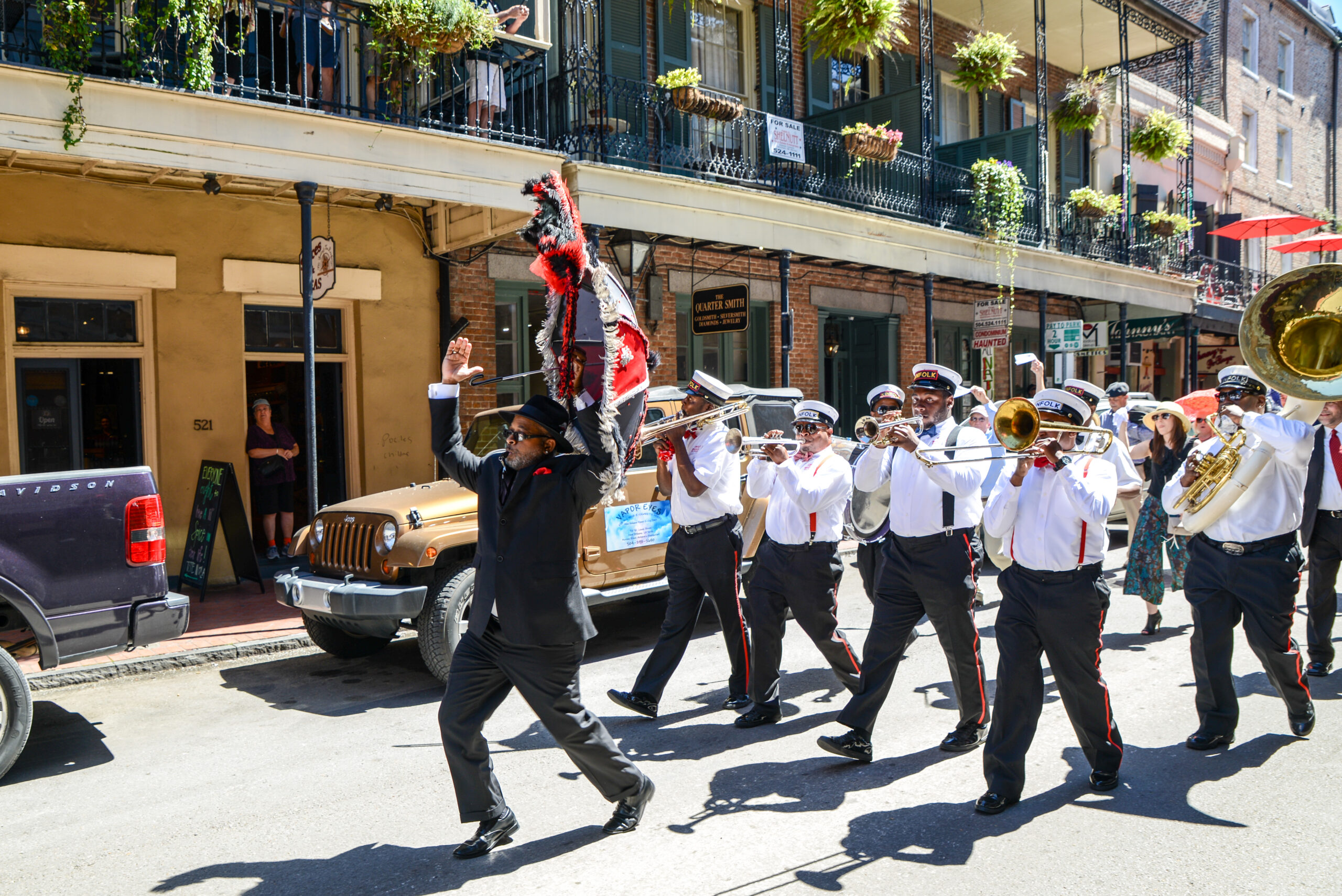New Orleans is a delight to the senses: delicious food that’s a taste sensation, visually spectacular architecture, and perhaps most iconically, sonically enriching music.
You can enjoy live music every night of the year here, and the proof of this superb state of affairs is the Livewire, a comprehensive clearinghouse of music around town maintained by local radio station WWOZ, itself dedicated to the sounds of the city. How many other cities with a population this size (370,000) have radio stations dedicated to their homegrown music scene, as well as books, movies and TV shows?
Why is music so important to New Orleans?
Because music was one of the central ways early New Orleanians countered oppression with expression. French colonizers permitted enslaved African people a day of rest, once a week; during this time, the enslaved assembled in Congo Square, located in the modern Treme, and were able to reconnect to the language and rhythms of the African continent. Those who gathered in the Square were eventually joined by the Free People of Color – free black or mixed citizens, at the time a rarity in the rest of the country, but fairly common here
The Free People often had education in classical instruments like the violin and piano. When American marching bands came through town during the Civil War, the combination of classical instrumental talent, African-originated rhythms, along with access to brass instruments gave rise to jazz, initially played in local bars and brothels, from where it then spread to the rest of the country. Jazz, in turn, has incubated all of the New Orleans music that has come since, and arguably American pop music as a whole, demonstrating that histories of pain and displacement can be transmuted into beauty and art – a lesson that is, quintessentially, New Orleanian.
What music are people listening to?
If we’re talking about the sounds of native soil, the particular music New Orleans has fostered is obviously jazz and all its derivatives. Brass band music is integral to second lines, urban parades organized by Social Aid & Pleasure Clubs, which have long been a cornerstone of the African American community. If you want to join a second line, and we think you should, everything you need to know is right here.
Hip-hop is huge, with bounce being the preferred sonic vehicle for millennials on up (the Gen Z crowd opts more for trap and associated genres)….
Click Here to Read the Full Original Article at Stories – Lonely Planet…
